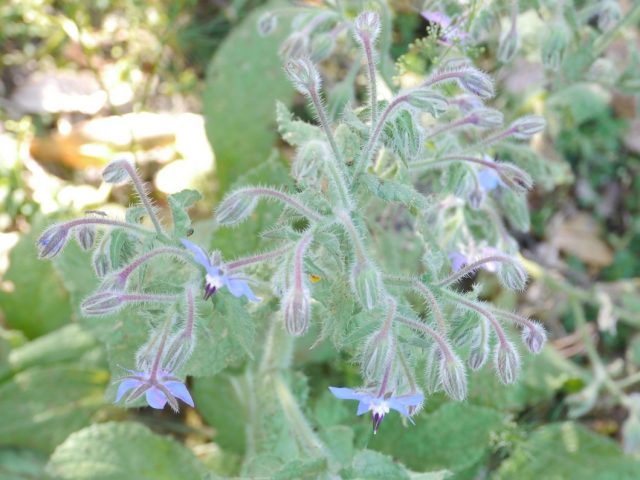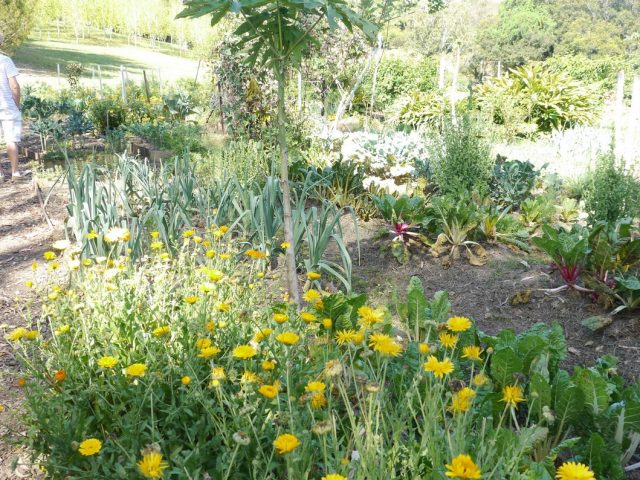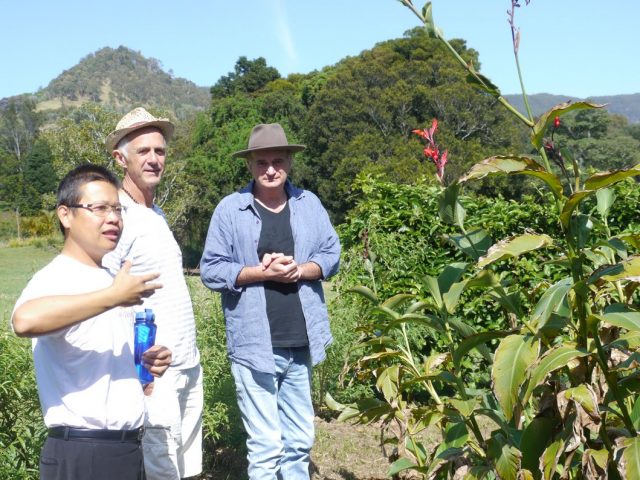Going organic has become a lifestyle choice for an increasing number of health-conscious consumers. The global organic food market is projected to grow at an annual compounded rate of 16% between 2015 to 2020 [1]. In Singapore, for instance, organic food is now easily available on the shelves of neighbourhood supermarkets like Sheng Siong and NTUC FairPrice [2]. Such growing demand has prompted some to question whether is there any true health benefit in organic food or is it merely a marketing gimmick!

Many people asked about my view on organic products these days. Of course, they range from those who are genuinely interested in organic to those who are sceptical. Here is my sharing from both the right and left brain.
From the right brain
My first taste…
 I used to be a sceptic myself, thinking that it was excessive to spend money buying organic products. One day, a friend of mine passed me an apple and asked me to taste whether I could tell the difference. My first bite of the apple – juicy, crunchy, and very fragrant, has imprinted a lasting vivid memory in me. Instinctively, I could feel a difference compared to the normal apples that I ate. The apple was an organic apple that my friend specially ordered by the box from the USA through an organic store. “Hmm… Organic is better… But still too expensive,” I thought to myself. That was 15 years ago, and organic fruits were rare and outrageously expensive in Singapore then.
I used to be a sceptic myself, thinking that it was excessive to spend money buying organic products. One day, a friend of mine passed me an apple and asked me to taste whether I could tell the difference. My first bite of the apple – juicy, crunchy, and very fragrant, has imprinted a lasting vivid memory in me. Instinctively, I could feel a difference compared to the normal apples that I ate. The apple was an organic apple that my friend specially ordered by the box from the USA through an organic store. “Hmm… Organic is better… But still too expensive,” I thought to myself. That was 15 years ago, and organic fruits were rare and outrageously expensive in Singapore then.
Vibrancy of a biodynamic farm…
A defining experience, however, came much later. In 2011, by chance, my wife and I visited a biodynamic farm in Byron Bay, Australia. A friend brought us to this farm located in the little town of Mullumbimby. What struck us the most when we walked into the farm was how thriving the crop were! All plants, be it vegetables or fruit-bearing trees, all flourished with such vibrancy that was beyond speech. We could sense a smoothing and uplifting energy in the air. It was an amazing experience. The farm was set up by a businessman who moved from Melbourne to be away from the busy city life. “A twenty-year project to experiment on the biodynamic farming, “, said the owner, “this is what I want to do here.” Biodynamic farming is a special form of organic farming with the additional steps of preparation that takes into consideration environmental factors such as moon phasing [3]. While the technicality of the farming method is interesting, my biggest take-away from this visit was a firm belief that organic farming methods like this one can produce crops that are highly charged with good energy.
Contrasting with…
A contrasting experience further strengthening my faith in organic farming later. This time was at the foot of Mount Kinabalu during a visit a friend’s family holiday house next to a golf course near the tidy village of Kampung Mesilau. Roaming about in the beautiful countryside dotted with vegetable farms, naturally, I was attracted to explore the farms. Walking towards to the plots of green vegetables nearly, increasingly I felt my itchiness in my eyes and started to tear and sneeze. My body was under attacked! My friend stopped me from getting any closer. He told me that the farmers there used a fair bit of chemical pesticides and fertilizers. They might have just sprayed some chemical pesticides recently! His family only ate their own garden produce and tried to stay away from their neighbours’ plots. Lesson learned!

From the left brain
Experience sharing from the right brain does not fare well with people who are left-brained. An acquaintance commented to me recently, “So, you believe in organic stuff, have you read a report that says organic food is no difference from non-organic food in term of nutrition?” My response was, “Let’s look at what is published on peer-review scientific journal for research evidence.”

In fact, there have been extensive research done in this area, including several high-quality systematic reviews and meta-analyses on the nutritional difference between organic and non-organic food [4–6]. Here is a summary of what science can tell us at present:
- Nutritional differences, in term of macro- (carb, protein, fatty acids) and micro-nutrients (vitamins and minerals) between organic and conventional produce appear minimal, but there are limitations in studies done thus far. More research is needed [4,6,7].
- Comparing to conventional produce, organic produce is found to have the following advantages:
- Higher level of phenolic compounds which contribute to a higher antioxidant activity [5,7].
- Fewer pesticide residues and consuming a diet of organic produce reduces human exposure to pesticides [7].
- Organic animal produce has the potential to reduce human disease caused by drug-resistant organisms due to the prohibition of antibiotics [7].
- Organic farming has a lower yield than conventional farming, but is more sustainable with lower fossil fuel consumption and environmental contamination of pesticides and herbicides [7,8].
Hence, organic farming methods do not add more nutrients to the food. However, if you wish to reduce your exposure to pesticides and antibiotics, increase your intake of antioxidant from your diet, and hope be more friendly to the environment, then go organic.

Conclusion
Personal experience and scientific understanding help to shape my preference for organic fruits and vegetables. Indeed, grown without the use of chemical pesticides and fertilizers, I believe they are better suited for health and wellness. Hence, myself and my wife have consciously gone for organic produce as part of our healthy living for almost six years now.
Of course, there are still arguments on whether exposure to pesticides can be harmful to health and whether higher antioxidant intake is truly beneficial, etc. As such, from official public health perspective, the phrase “no conclusive evidence” that organic food is better for health is often cited as the position of the public health institutions [9]. Organic food is also more expensive. At the end of the day, whether to buy organic or not, is one’s choice based on health belief and budget.
References
[1] TechSci Research, Global Organic Food Market Forecast and Opportunities, 2020, New York, NY, 2015. https://www.techsciresearch.com/report/global-organic-food-market-forecast-and-opportunities-2020/450.html (accessed February 21, 2017).
[2] M.H. Baharudin, Y.R. Seow, Neighbourhood supermarkets are going big with organic products to meet growing demand, Health News & Top Stories – The Straits Times, New Pap. (2016). http://www.straitstimes.com/singapore/health/neighbourhood-supermarkets-are-going-big-with-organic-products-to-meet-growing (accessed February 20, 2017).
[3] L. Chalker-Scott, The science behind biodynamic preparations: A literature review, Horttechnology. 23 (2013) 814–819.
[4] C. Smith-Spangler, M.L. Brandeau, G.E. Hunter, J. Clay Bavinger, M. Pearson, P.J. Eschbach, V. Sundaram, H. Liu, P. Schirmer, C. Stave, I. Olkin, D.M. Bravata, Are organic foods safer or healthier than conventional alternatives?: A systematic review, Ann. Intern. Med. 157 (2012) 348–366. doi:10.7326/0003-4819-157-5-201209040-00007.
[5] M. Barański, D. Średnicka-Tober, N. Volakakis, C. Seal, R. Sanderson, G.B. Stewart, C. Benbrook, B. Biavati, E. Markellou, C. Giotis, J. Gromadzka-Ostrowska, E. Rembiałkowska, K. Skwarło-Sońta, R. Tahvonen, D. Janovská, U. Niggli, P. Nicot, C. Leifert, D. Srednicka-Tober, N. Volakakis, C. Seal, R. Sanderson, G.B. Stewart, C. Benbrook, B. Biavati, E. Markellou, C. Giotis, J. Gromadzka-Ostrowska, E. Rembiałkowska, K. Skwarło-Sońta, R. Tahvonen, D. Janovská, U. Niggli, P. Nicot, C. Leifert, Higher antioxidant and lower cadmium concentrations and lower incidence of pesticide residues in organically grown crops: a systematic literature review and meta-analyses, Br. J. Nutr. 112 (2014) 794–811. doi:10.1017/S0007114514001366.
[6] A. Dangour, S. Dodhia, A. Hayter, Nutritional quality of organic foods: a systematic review, Am. J. …. 90 (2009) 680–685. doi:10.3945/ajcn.2009.28041.The.
[7] J. Forman, J. Silverstein, Organic Foods: Health and Environmental Advantages and Disadvantages, Pediatrics. 130 (2012) e1406–e1415. doi:10.1542/peds.2012-2579.
[8] U. Niggli, Sustainability of organic food production: challenges and innovations, Proc. Nutr. Soc. 74 (2015) 83–88. doi:10.1017/S0029665114001438.
[9] S. Health Promotion Board, Organic Food Are They Better for You, (n.d.). http://www.hpb.gov.sg/HOPPortal/health-article/6166 (accessed February 21, 2017).












